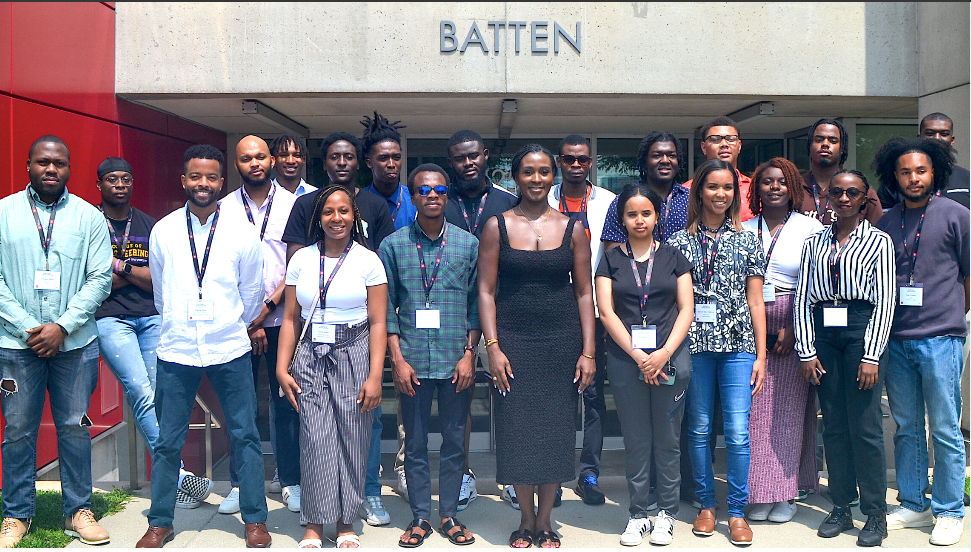Harvard-AWS NextGen Accelerator backs 12 student-owned African startups
Harvard Innovation Labs and Amazon Web Services have selected 12 African student-led startups for the inaugural NextGen Accelerator.

Harvard Innovation Labs and Amazon Web Services (AWS) have selected the inaugural participants for the NextGen Accelerator, a two-week founder boot camp for early-stage student founders from Historically Black Colleges and Universities (HBCUs) and universities in Sub-Saharan Africa.
Out of the 25 black-led startups selected for the program, 12 are founded by African students studying at the Federal University of Technology, Akure in Nigeria, University of the Witwatersrand in South Africa, University of Nairobi, African Leadership University, Ashesi University and the University of Ghana, University of Dar es Salaam and Saint Paul's University in Kenya.
“We are thrilled to welcome student founders from colleges and universities across Ghana, Kenya, Nigeria, Rwanda, South Africa, Tanzania, and the U.S. to Boston,” said Matt Segneri, Bruce and Bridgitt Evans Executive Director of the Harvard Innovation Labs. “These students are working on a wide range of inspirational products and services, and we look forward to seeing all they accomplish both during the NextGen Accelerator and beyond.”
The African startups cut across the following sectors; fintech, logistics, agritech, edtech, and healthtech. Ghana and Kenya dominated the list with four startups each, meanwhile, Tanzania, Nigeria, and South Africa were represented by one startup each.
All selected startups will receive $5,000 in AWS credits and access to AWS experts. They also received a grant from The Schultz Family Foundation to cover housing, food, and flight expenses.
During the in-residency program which was held last month, the founders will engage in daily sessions covering various topics, such as customer discovery, market validation, pitching, fundraising, and leadership skills. Leading African investors; Founding Partner of Ajim Capital, Eunice Ajim; Daniel Acheampong, General Partner of Visible Hands; Kofi Ampadu, Partner at Andreessen Horowitz and Javier Grevely, Co-Lead of BLCK VC in Boston, were panelists at the closing event which was held last week.
“The goal is to help them turbocharge their businesses with the power of the cloud from day one,” Havard Innovation Labs said in a statement. “This opportunity is a true honor and holds immense promise for our venture,” says Gentil Ndoba, Co-Founder & CEO of HiQ Africa, one of the selected startups. Ndoba is a student at the African Leadership University, in Rwanda.
Meet the African startups in the HIL-AWS NextGen Accelerator
Ghana
- FeatheryCare (University of Ghana) is an agricultural technology startup using computer vision and robotics to reduce chick mortality rates and improve poultry management during brooding.
- LbH LC (University of Ghana) is an agricultural technology startup that connects smallholder farmers to financing, data-driven agronomy services, and premium markets.
- Hurupay (Ashesi University) is a mobile wallet that enables African SMEs to accept stable-coin payments from customers to mitigate local currency devaluations.
- Sabon Sake (Ashesi University) manufactures affordable organic soil boosters and provides regenerative agricultural training for farming communities threatened by the climate crisis.
Kenya
- AfyaBridge (University of Nairobi) connects users to medical services by providing real-time resource data, providing care access based on proximity, affordability, and availability.
- Parksby (University of Nairobi) connects individuals and entities with available parking spaces to those in need, making it easier to find and book parking in crowded urban areas.
- Tawi Digital Health (University of Nairobi) builds digital health solutions for people living with non-communicable diseases to enable them to get last-mile care services.
- Quick Cart (St. Paul’s University) provides grocery delivery to African households within 10 minutes.
Nigeria
- Acceede (Federal University of Technology, Akure) offers a digital and flexible payment provider for quality education.
Rwanda
- HiQ Africa (African Leadership University) is a data-tech company building a smart and sustainable fast-moving consumer goods market in Africa using market intelligence to address daily inefficiencies.
South Africa
- Puno (University of the Witwatersrand) is a fintech solution for African small-scale farmers to crowdsource funds that also provides insurance support and market access.
Tanzania
- Smartdarasa (University of Dar es Salaam) uses 2D, 3D, and AR technologies to help students understand STEM in an easy, fun, and affordable way.






